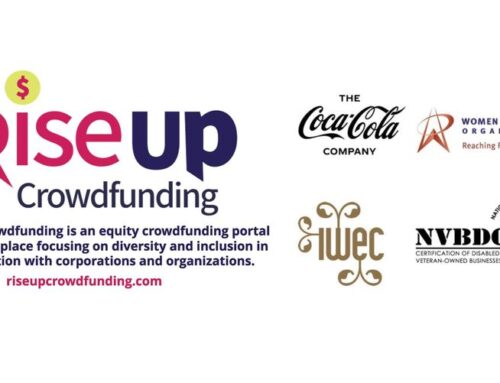Telegraph/UK
Female Angels Need to Give Women Entrepreneurs Wings
“There’s a lack of women investors coming through,” Grant says. “If female-led businesses aren’t getting funding, we’re missing out on some potentially great businesses. Not just female-led ventures but, crucially, female-focused ones.”
One recent Seedrs campaign that fell short of its funding target was Evarae, a line of high-end swimwear, created by a former Topshop designer.
“It was a beautiful campaign but it couldn’t get across the line,” Grant says. “Research shows women aren’t investing money anywhere. They are holding funds in cash and sometimes property but very few are investing in stocks and shares.
“Yet when a female VC backs a female-led start-up it is 21pc more likely to succeed.” Hayley Wells, a 24-year-old Coca Cola executive, bucks the trend. She invested in Evarae’s Seedrs campaign and was surprised when it did not make its target.
“I felt that men didn’t get the opportunity,” she says. “But because I back businesses that I like and understand, I saw the potential.”
Does this mean that women, and the wider UK economy, could be missing out on innovative products and services because these businesses cannot raise funding in those crucial early days?
Libby Gibson, a founding partner at Piper, a leading specialist investor in consumer brands, which pioneered the first “female-friendly” bar chain, Pitcher & Piano, in 1986, says: “A lack of understanding by predominantly male investors may have played a part in preventing certain female-focused brands from reaching their potential. Entrepreneurs with a clear, strong brand that truly satisfies consumer need will often break through and prosper, but external support in the early days can be vital in helping to steer a brand along the path to success.”
Diversity has been proven to generate genuine business benefits. A McKinsey report showed that diverse teams have a better financial performance on average, than less diverse teams. Simon Cook, chief executive of the listed fund DFJ Esprit has started actively recruiting women in a bid to spot and exploit untapped opportunities.
“In our recent hiring spree, 50pc of the new recruits were female,” he says. It’s not just about bringing more women into the industry: “It’s about bringing in different nationalities and different views in general.”
Serial entrepreneur Debbie Wosskow, founder of the home swapping business Love Home Swap, is also looking to target super successful female entrepreneurs through her new funding venture, Allbright. Crucially, the business, which launched last year, has a predominantly female investment team.
“I started Allbright because in my 15 years of being an entrepreneur and raising capital for different businesses, I’ve never pitched to a woman for money,” Wosskow says. “Only 10pc of the capital raised by global businesses goes to women, but women get 35pc better returns than men.”
“We’re seeing a lot of businesses targeting female issues, such as motherhood and women’s health,” Wosskow says. “A lot of these entrepreneurs says they don’t get a hearing from male investors.
“There are so many horror stories,” she continues. “Often when pitching to an all-male team, an investor will say they need to ask their wife or get the receptionist.”
Cathy White, director of GeekGirl Meetup, a networking organisation for women in technology, believes that having more female investors would help to stamp out the sexism that remains rife in the sector.
“I’ve heard of women wearing fake engagement rings to avoid being propositioned by investors, or even specifically finding a male co-founder so it’s less likely that questions about children will come up,” she says.


